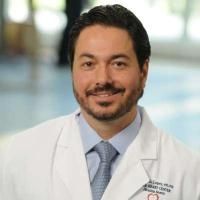Evaluation of the prognostic value of GDF-15, ABC-AF-bleeding score and ABC-AF-death score in patients with atrial fibrillation across different geographical areas.
Date
2021-03
Journal Title
Journal ISSN
Volume Title
Repository Usage Stats
views
downloads
Citation Stats
Abstract
Objectives
Growth differentiation factor 15 (GDF-15) is a biomarker independently associated with bleeding and death in anticoagulated patients with atrial fibrillation (AF). GDF-15 is also used as one component in the more precise biomarker-based ABC (age, biomarkers, clinical history)-AF-bleeding and ABC-AF-death risk scores. Data from large trials indicate a geographic variability in regard to overall outcomes, including bleeding and mortality risk. Our aim was to assess the consistency of the association between GDF-15, ABC-AF-bleeding score and ABC-AF-death score, with major bleeding and death, across world geographic regions.Methods
Data were available from 14 767 patients with AF from the Apixaban for Reduction in Stroke and Other Thromboembolic Events in Atrial Fibrillation (ARISTOTLE) trial and 8651 patients with AF from the Randomized Evaluation of Long-Term Anticoagulation Therapy (RE-LY) trial in this cohort study. GDF-15 was analysed from plasma samples obtained at randomisation. The geographical consistency of the associations between outcomes and GDF-15, ABC-AF-bleeding score and ABC-AF-death scores were assessed by Cox-regression models including interactions with predefined geographical region.Results
GDF-15 and the ABC-AF-bleeding score were associated with major bleeding in both trials across regions (p<0.0001). Similarly, GDF-15 and the ABC-AF-death score were associated with all-cause mortality in both trials across regions (p<0.0001). Overall, the association between GDF-15, the ABC-AF-bleeding score and ABC-AF-death risk score with major bleeding and death was consistent across regions in both ARISTOTLE and the RE-LY trial cohorts. The ABC-AF-bleeding and ABC-AF-death risk scores were consistent regarding discriminative ability when comparing geographic regions in both trial cohorts. The C-indices ranged from 0.649 to 0.760 for the ABC-AF-bleeding and from 0.677 to 0.806 for the ABC-AF-death score by different geographic regions.Conclusions
In patients with AF on anticoagulation, GDF-15 and the biomarker-based ABC-AF-bleeding and ABC-AF-death risk scores are consistently associated with respectively increased risk of major bleeding and death and have similar prognostic value across world geographic regions.Trial registration number
ClinicalTrials.gov Registry NCT00412984 and NCT00262600.Type
Department
Description
Provenance
Subjects
Citation
Permalink
Published Version (Please cite this version)
Publication Info
Pol, Tymon, Ziad Hijazi, Johan Lindbäck, John H Alexander, M Cecilia Bahit, Raffaele De Caterina, JW Eikelboom, Michael D Ezekowitz, et al. (2021). Evaluation of the prognostic value of GDF-15, ABC-AF-bleeding score and ABC-AF-death score in patients with atrial fibrillation across different geographical areas. Open heart, 8(1). pp. e001471–e001471. 10.1136/openhrt-2020-001471 Retrieved from https://hdl.handle.net/10161/22860.
This is constructed from limited available data and may be imprecise. To cite this article, please review & use the official citation provided by the journal.
Collections
Scholars@Duke

John Hunter Peel Alexander
John H. Alexander, MD, MHS is a cardiologist and Professor of Medicine in the Department of Medicine, Division of Cardiology at Duke University School of Medicine, as well as the Vice Chief, Clinical Research in the Division of Cardiology. He is the Director of Cardiovascular Research at the Duke Clinical Research Institute where he oversees a large group of clinical research faculty and a broad portfolio of cardiovascular clinical trials and observational clinical research programs. He is a member of the American Society of Clinical Investigation.
Dr. Alexander’s clinical interests are in acute and general cardiovascular disease, valvular heart disease, and echocardiology. His research is focused on the translation of novel therapeutic concepts into clinical data through clinical trials, specifically on the therapeutics of acute coronary syndromes, chronic coronary artery disease, and cardiac surgery and on novel methodological approaches to clinical trials. He was on the Executive Committee of the ARISTOTLE trial of apixaban in patients with atrial fibrillation and was the Principal Investigator of the APPRAISE-2 trial of apixaban in patients with acute coronary syndromes.
Dr. Alexander has published extensively and has served as the principal investigator of numerous multicenter clinical trials. He currently serves as the co-chair of the Clinical Trial Transformation Initiative (CTTI).

Christopher Bull Granger
Research:
My primary research interest is in conduct and methodology of large randomized clinical trials in heart disease. I have led a number of large international clinical studies in heart attacks, unstable angina, heart failure, and atrial fibrillation. I have lead clinical studies of blood thinners and coronary intervention for heart attacks, stroke prevention in atrial fibrillation, and prevention of heart attack for patients with coronary artery disease. I have been co-director of the Reperfusion of Acute MI in Carolina Emergency Departments (RACE) project that is a North Carolina state-wide program to improve reperfusion care for acute myocardial infarction. I serve as the Chairman of the American Heart Association Mission: Lifeline program to improve heart attack care nationally as well as the American College of Cardiology/American Heart Association guideline committee for heart attack care. I have also studied the effects of genetic variation on heart disease. I work with the National Institute of Health and the Federal Drug Administration on evaluation of heart disease and of new drugs. I have developed tools to predict which patients are at risk for death, heart attack, and need for hospitalization.

Renato Delascio Lopes
Atrial Fibrillation
Antithrombotic Therapy in patients with Acute Coronary Syndromes
Elderly patients with Heart Disease
Biomarkers in Acute Coronary Syndromes and Atrial Fibrillation
Thrombosis and Anticoagulation and novel antithrombotic agents
Metabolomics in Cardiovascular Medicine
Unless otherwise indicated, scholarly articles published by Duke faculty members are made available here with a CC-BY-NC (Creative Commons Attribution Non-Commercial) license, as enabled by the Duke Open Access Policy. If you wish to use the materials in ways not already permitted under CC-BY-NC, please consult the copyright owner. Other materials are made available here through the author’s grant of a non-exclusive license to make their work openly accessible.
